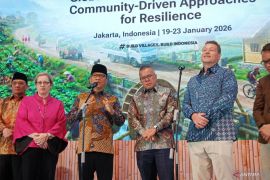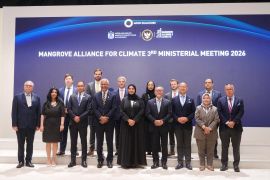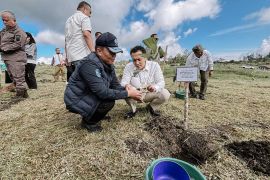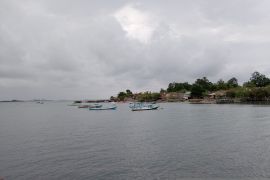A rising trend of temperatures has been recorded in Indonesia, head of the Applied Climate Information Service Center of BMKG, Ardhasena Sopaheluwakan, said during a virtual discussion in Jakarta on Wednesday.
"As an impact, it is undeniable that a lot has happened with conditions in Indonesia, for example the loss or melting of ice in Puncak Jaya, where at this time (the temperature) on the ice surface of the Puncak Jaya is already above freezing point, about five degrees," Sopaheluwakan said.
In the next few years, the ice that is on the top of the highest mountain in Indonesia will disappear, he predicted.
The impact of climate change can also be seen in the increase in the frequency of extreme rainfall in many areas in the country, he said. The extreme rain is causing floods and other disasters that are having an impact on humans, he added.
He warned that climate change would not only result in excessive rain but could also potentially cause extreme droughts.
"So it has an impact on forest fires, which further have an impact on transboundary pollution and have an impact on economic activities, transportation, as well as health," he said.
Related news: Indonesia reaffirms actual work to mitigate climate change impact
He explained that the BMKG was involved in strengthening climate change adaptation and mitigation measures, including in agricultural activities and the health sector.
BMKG has implemented a Climate Field School to help farmers adapt to climate extremes and climate change, he said.
Thus, farmers can adjust their cropping patterns to climatic conditions, he added.
"We also continue to carry out early warnings for dengue fever, which are currently being carried out in Jakarta, although the plan will be expanded to other areas," he said.
Environmental director of the Ministry of National Development Planning/ National Development Planning Agency (Bappenas), Medrilzam, had earlier cautioned that Indonesia could incur losses to the tune of nearly Rp544 trillion by 2024 on account of climate change.
"The projection of climate change in Indonesia can be said to be unfavorable, as global changes will also have implications for Indonesia," Medrilzam noted.
He cited the example of an increase in the earth's temperature that can cause high waves, thereby increasing the vulnerability of people living along the coast to disasters.
In addition, changes in the earth's temperature can also cause extreme weather, both rain and extreme drought, which can cause floods, landslides, and forest fires, he said.
"This will certainly have an impact on the productivity of related sectors, such as agriculture. Rice production will decline," Medrilzam added.
Related news: Minister highlights extreme weather events triggered by climate change
Translator: Prisca T, Azis Kurmala
Editor: Suharto
Copyright © ANTARA 2022












